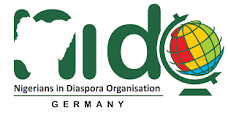
-
Seek dollar loans to ferry home
In a bid to take advantage of the wide gap between the official and parallel markets exchange rates back home, many Nigerians in the diaspora are now rushing to obtain dollar loans abroad, New Telegraph has learnt. It was gathered that having obtained the loans, these Nigerians then offer them to local businesses with dollar obligations and also to parents who have wards schooling overseas and require forex for school fees, at rates close to the going parallel market exchange rate of the naira to the dollar at that particular point in time. Once the deal is struck and the agreed naira equivalent of the amount is paid into the local bank account of the overseasbased Nigerian, he will transfer the dollar into the beneficiary’s domiciliary account.
The naira currently exchanges at N199 to the dollar on the official interbank market, but goes for over N315 to the greenback on the parallel market. Findings also revealed that where the amount to be transferred is not too large, requiring it to be declared to the Customs, the beneficiary could receive the funds through someone returning to the country.
Some Nigerians who recently returned from the United States said that several diaspora Nigerians who are engaging in these deals have made so much money in recent times that they have been able to acquire a lot of assets back home.
A businessman, who is familiar with the development, said: “You know it is a lot easier to obtain bank loans over there compared with the situation in Nigeria. So, they are getting these loans and exchanging the dollar at close to parallel market rates and a lot of money is being deposited in their naira accounts here.
Many of these people are the ones currently buying up houses and other landed properties in the country.” He noted that in order to be able to repay the loans, such Nigerians are taking up several jobs in the US and engaging in many other activities that would augment their income.
Besides, he revealed that apart from businessmen who are unable to access forex from Nigerian banks, parents who have wards in foreign institutions and urgently require forex for the school fees are the ones mainly patronising these diaspora Nigerians. He explained that such parents would reach an agreed exchange rate with the diaspora Nigerian who will then pay the school fees on the parents’ behalf.
In return, the parent will deposit the naira equivalent into the local bank account of the Nigerian. When contacted, the CBN could not immediately react to the development, but a top official of the apex bank who declined to be named because he was not authorised to speak on the issue, argued that diaspora Nigerians who were taking dollar loans to speculate on the naira will have their fingers burnt at the end of the day. The official said: “Dealing in forex is a highly risky business. Nobody knows what would happen to the rates tomorrow.
They are taking these loans on the assumption that the naira will continue to slide, but eventually they have to repay the loans in dollar and no matter how low the interest rate might be, it will still be tough for them to repay.” Also commenting on the development, a financial analyst and Principal Consultant at Henates and Associates, Mr. Henry Atenaga, said parents who are unable to access forex from Nigerian banks to pay their children and wards’ school fees accept the high rates offered by the diaspora Nigerians because not doing so would amount to subjecting their children to a lot of suffering aside from the risk of being thrown out of school. He said: “If the parents are unable to get forex from banks to pay their kids’ school fees, what do you expect them to do? Of course, they would do what they have to do to ensure that this does not happen.
You cannot blame the parents because they did not bargain for this kind of problem when they took the decision to give their kids a sound education abroad. The only alternative to not accepting the rates offered by the diaspora Nigerians is to withdraw the kids and bring them back home.”
President Muhammadu Buhari recently said that Nigeria cannot afford to sell forex to parents seeking to fund their children’s education abroad. He explained that this was due to the discovery that the high demand for forex by parents of students studying abroad to pay their wards’ tuition fees was responsible for naira’s decline on the parallel market. He, however, said that any parent who could afford forex outside of the official window could go ahead.
Specifically, he said: “Those who can afford foreign education for their children can go ahead but Nigeria cannot afford to allocate foreign exchange for those who decide to train their children outside the country. We can’t just afford it. That is the true situation we are in.”
It will be recalled that the Deputy Governor, Financial System Surveillance, CBN, Dr. Joseph Nnana, last week, told a meeting of the Joint Appropriation Committees of the National Assembly with government officials on the 2016 budget that about $20 billion (N3.94 trillion) was lying idle in different domiciliary accounts of Nigerian citizens.
END

Be the first to comment